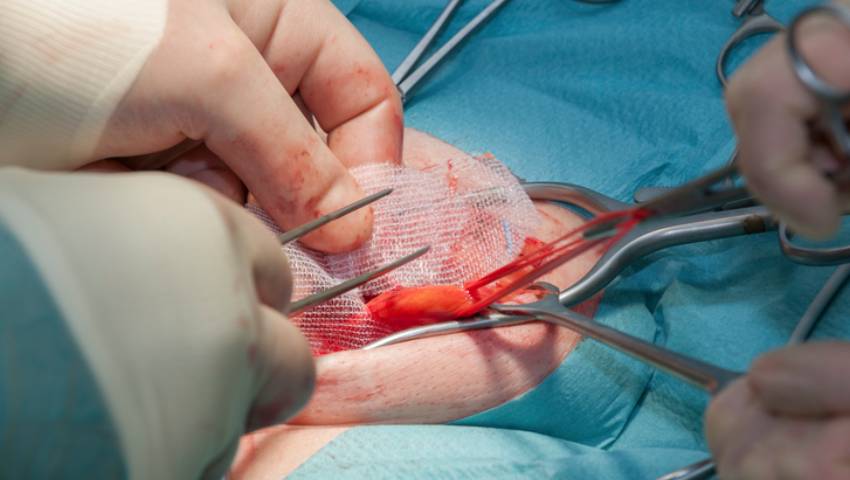
- 13/09/2024
- Dr. Samrat Jankar
- 0 Comments
- Blog
Why do Hernia Repairs Fail?
Hernia repairs are generally successful procedures, but in some cases, they can fail, leading to recurrent hernias or complications. Understanding why these failures happen can help in preventing them and ensuring better outcomes for patients. Dr. Samrat Jankar, a leading gastroenterologist and gastrointestinal surgeon in Pune at Kaizen Gastro Care, sheds light on the key reasons behind hernia repair failures and how they can be managed.
Inadequate Surgical Technique:
- Poor Mesh Placement: If the surgical mesh used to support the hernia repair is not properly positioned, it can shift or become dislodged, leading to a recurrence.
- Tension on the Repair: Placing too much tension on the tissues during repair can lead to tearing or weakening, mainly in tension-based repairs.
- Incomplete Closure: Failing to fully close the hernia defect or leaving weak areas can result in a recurrence.
Infection:
- Mesh Infection: Infection of the surgical mesh can lead to its degradation, weakening the repair and causing failure. Infected mesh may require to be removed, improving the risk of recurrence.
- Wound Infection: An infection at the surgical site can compromise healing, leading to the weakening of the repaired area.
- Delayed Healing: Infections can prevent the wound from healing properly, improving the risk of recurrence.
Poor Tissue Quality:
- Weak Tissues: In some patients, the tissues around the hernia are weak or thin, making it challenging to achieve a long-lasting repair.
- Collagen Disorders: Conditions that affect collagen production or quality can lead to poor healing and an improved risk of hernia recurrence.
Patient Factors:
- Obesity: Excess body weight puts additional pressure on the abdominal wall, improving the likelihood of hernia recurrence.
- Smoking: Smoking damages wound healing and can contribute to infection and tissue breakdown, leading to repair failure.
- Chronic Cough or Straining: Conditions that cause chronic coughing, constipation, or straining can place stress on the repair site, leading to failure.
- Poor Wound Healing: Factors such as diabetes, smoking, or use of certain medicines can impair the body’s ability to heal properly.
Postoperative Factors:
- Inadequate Postoperative Care: Loss of following postoperative instructions, such as avoiding heavy lifting or straining, can put excessive pressure on the repair site.
- Early Return to Activity: Returning to severe activity too soon after surgery can compromise the integrity of the repair.
Recurrence of Original Risk Factors:
- Recurrent Causes: If the underlying cause of the hernia, such as chronic straining or a persistent cough, is not managed, the hernia may recur despite a successful repair.
Mesh Failure:
- Mesh Degradation: Over time, some meshes may degrade or lose their structural integrity, leading to a breakdown of the repair.
- Mesh Rejection: In rare cases, the body may reject the mesh, leading to inflammation, infection, and failure of the repair.
Technical Challenges:
- Complex Hernias: Large or complex hernias, such as incisional hernias, are more difficult to repair and have a higher risk of recurrence.
Preventive Measures and Recommendations:
To minimize the risk of hernia repair failure, consider the following recommendations:
- Choose an Experienced Surgeon: Choosing a skilled and experienced surgeon can significantly impact the success of the procedure.
- Follow Pre- and Post-Operative Instructions: Sticking to pre-operative guidelines and post-surgical care instructions is essential for optimal healing.
- Address Underlying Conditions: Manage any pre-existing conditions that could affect the healing procedure, such as diabetes or obesity.
- Regular Follow-Ups: Attend regular follow-up appointments to monitor the repair and manage any issues promptly.
Conclusion:
While hernia repair is normally a safe and effective procedure, understanding the potential causes of failure can help in preventing complications and ensuring a successful outcome. Dr. Samrat Jankar and the team at Kaizen Gastro Care are dedicated to providing high-quality care and personalized treatment plans to address individual needs and reduce the risk of hernia repair failures.
For more information or to consult with the best hernia surgeon in Pune, Dr. Samrat Jankar, contact Kaizen Gastro Care today.
